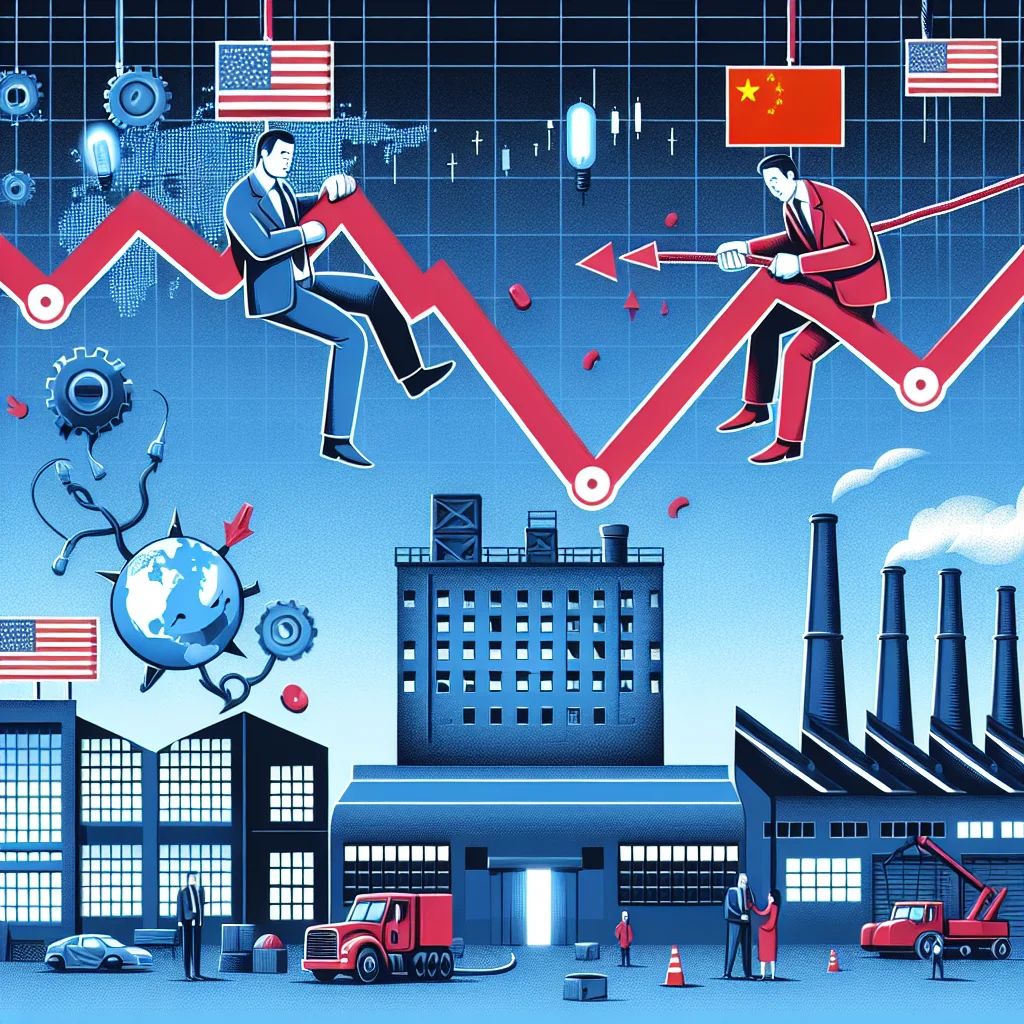
US Jobs Market Slows as New Tariffs Intensify Trade Tensions
The US economy is facing renewed pressure as the labor market shows signs of weakness following the Trump administration's latest round of tariffs on Chinese imports. Markets responded sharply on Thursday, with the Dow Jones Industrial Average falling over 500 points and the S&P 500 down 1.3% by mid-afternoon, as investors weighed the impact of escalating trade tensions.
Details of New Tariffs
On July 31, President Donald Trump announced a new set of tariffs targeting $200 billion worth of Chinese goods, effective immediately. The White House cited ongoing concerns over intellectual property theft, forced technology transfers, and what it calls "unfair trade practices." The new tariffs, ranging from 10% to 25%, affect electronics, machinery, textiles, and consumer goods, raising fears over higher prices for American consumers and businesses.
Labor Market Data Reflects Growing Strain
Friday's jobs report from the Bureau of Labor Statistics revealed that US employers added only 85,000 jobs in July, well below economists’ expectations of 160,000. The unemployment rate edged up to 4.2%, marking the highest level since 2021. Sectors most impacted by the tariffs, including manufacturing, retail, and transportation, reported hiring slowdowns and layoffs.
- Manufacturing: Lost 20,000 jobs in July, as companies cited higher input costs and reduced export demand.
- Retail: Hiring slowed amid concerns over rising import prices and dampened consumer spending.
- Transportation: Logistics and freight companies reported reduced volumes related to the trade downturn.
Stock Markets Sink Amid Economic Uncertainty
The new tariffs have rattled financial markets, with major indices posting their largest single-day declines in months. Technology and industrial sectors were hit particularly hard, given their exposure to global supply chains and reliance on Chinese components. Investors sought refuge in safe-haven assets such as US Treasury bonds and gold, both of which saw price increases.
Global Implications and Economic Outlook
China responded by announcing retaliatory tariffs on $60 billion of US goods, intensifying concerns of a prolonged trade dispute. Economists warn that persistent tariffs could dampen US GDP growth, slow hiring, and accelerate inflation in the coming quarters. The Federal Reserve is now under pressure to consider further interest rate cuts to support the economy.
As the trade war escalates, American businesses and consumers brace for continued volatility. Policymakers and industry leaders have called for renewed negotiations to de-escalate tensions and stabilize markets.
Key Takeaways
- US announces new tariffs on $200 billion in Chinese goods; China retaliates in kind.
- US job growth slows sharply, unemployment rises to 4.2%.
- Stock markets post steep declines amid mounting economic fears.
- Economists warn of potential recession risks if trade tensions persist.














